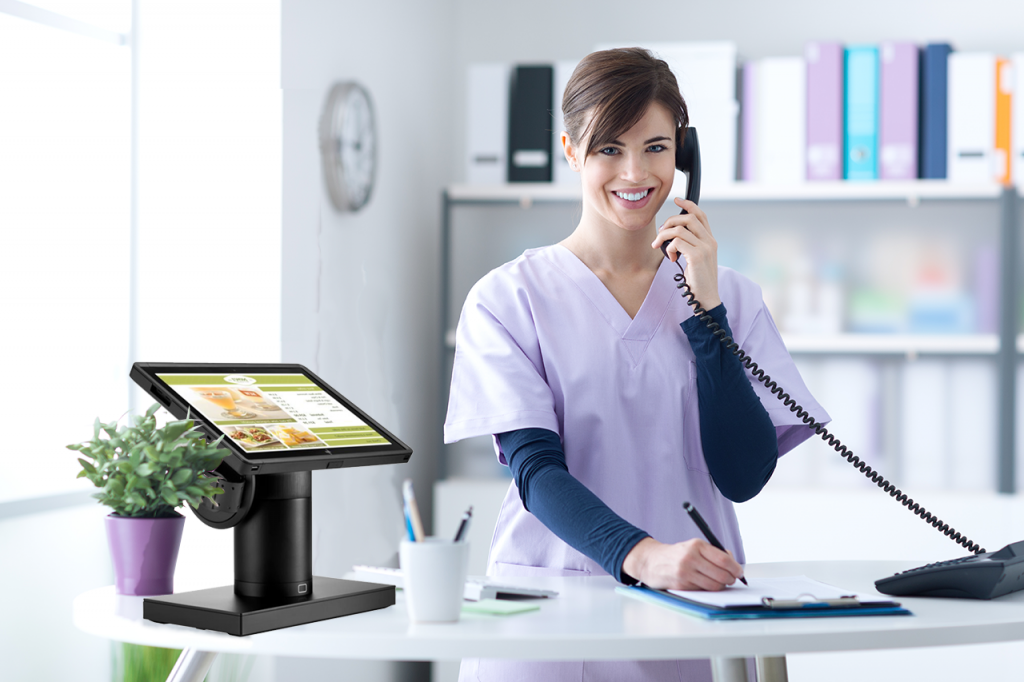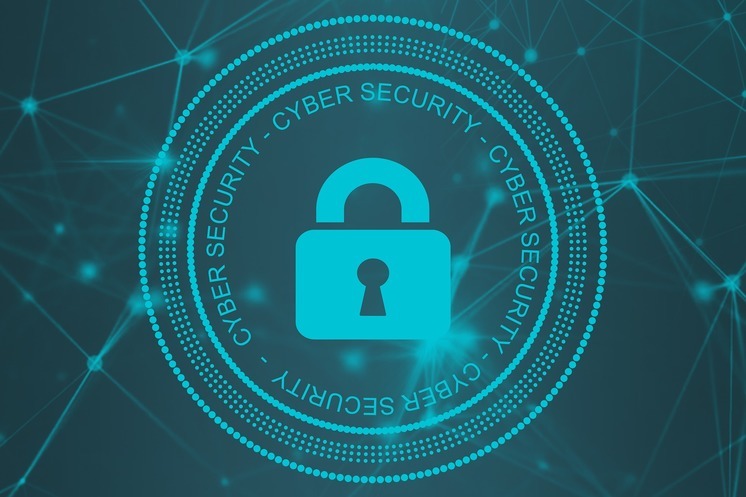Retail Innovations Drive Changes in Healthcare
If necessity is the mother of invention, the necessity for new ways to introduce many inventions in healthcare—and some of those inventions are being borrowed from other industries. Just before the pandemic, Point of Sale (POS) technologies in the retail sector were among the most innovative in the world.
Amazon rolled out stores with no checkout lines or cash registers, where RFID tags and sensors on products would immediately register in a buyer’s virtual basket, and would be charged to their account when they walked out the door.
Apple had perfected shopping experiences where roving sales associates could ring up customers on the floor and offer tailored upsell promotions on the spot. But when the pandemic hit, retail was one of the hardest hit markets.

Similarities Between Retail & Healthcare
Just as retailers were seeing a drop in traffic, healthcare visits surged, with an immediate need to distance patients and providers, find new ways to treat patients remotely, and offer contactless interactions when necessary.
HP saw similar patterns between retail and healthcare environments. Both have a high need for mobile tablets with integrated peripherals, embedded security, and a rugged design optimized for long life in a harsh environment. And in response to the pandemic, both retail and healthcare organizations have adopted public health protocols requiring devices to be repeatedly sanitized on a daily basis.
To respond as rapidly as possible to the surge in demand for appropriate innovations in healthcare, HP adapted its most popular retail POS system, the Engage Go platform, and updated it for a healthcare setting.
Designed for Flexibility & Repeated Redeployment
HP’s Engage Go convertible tablet has a modular design that makes it a highly adaptable tool for healthcare. It can be used as a dedicated mobile platform, allowing physicians and staff to roam, or it can be docked and locked to a matching base for stationary tasks like a patient intake kiosk or nursing station. It has more than enough power to interface with EHR systems, while its modular design can transform its deployment from patient monitoring to mobile medical carts.
By changing tablet bases, it can be anchored to a counter and operated as a touchscreen display, or attached to a wall to be used as an information monitor. It’s a perfect platform for telemedicine connections with patients, as well as a mobile computer for paramedics.
But the real flexibility of the Engage Go is in the combination of powerful CPUs combined with HP’s unique hardware-enforced security, Sure Suite. The same Sure Suite system that hardens every Engage Go retail device against credit card hackers protects each healthcare device against ransomware attacks with multi-layered and biometric security features.
Hardware-Enforced Security to Protect Private Data
HP’s Sure Suite is based on the Endpoint Security Controller (ESC), a small piece of hardware attached to the motherboard that monitors security and controls features that protect the device from malware attacks, evade system exploits, recover from attacks automatically by reloading from a secure system image, and notify admins of security attacks.
Biometric controllers ensure secure access only by authorized users. To protect from the most common cause of ransomware attacks, particularly phishing emails or dangerous web links, the Sure Suite is able to automatically sandbox internet connections in an onboard virtual machine to isolate links from the operating system and registry.
Planning for Long-Term Utility in Healthcare Environments
What we like most about the Engage Go platform is the flexibility with which it can be adapted and redeployed in different configurations for healthcare, which makes it well-suited for the many changes healthcare providers have had to make responding to the pandemic.
Whether you need temporary intake systems to deal with a surge in patient triage, or a mobile system to manage a drive-up vaccine station, the Engage Go tablet has the power and reliability to deploy without losing access to cloud-based systems and data. As a nursing workstation, it can detach from its base to allow staff to move wherever they’re needed, with the data and connectivity needed to manage healthcare applications and workflows.
Important additional features for healthcare include EMF shielding, 60601-1-2 certified, a lockable base, up to 13-hour battery life, rugged design, and sanitizable surfaces tested to withstand more than 10,000 germicidal wipe downs. We believe these devices will see many years of service, likely in several different configurations over their useful life.
How RTI Can Help
As an experienced healthcare IT service provider, Riverside Technologies, Inc. (RTI) closely follows trends like these, including the need to support remote and contactless transactions, and to ensure secure integration with both cloud-based and legacy application.
We maintain a close partnership with HP to deliver meaningful innovations in healthcare solutions, and we specialize in integrating endpoint devices securely with EHR systems. To find out how we can help your healthcare organization, call our experts today at 866-804-4388!
Date Posted: 12/1/20
Date Last Updated: 9/29/23
By: RTI Marketing Team




